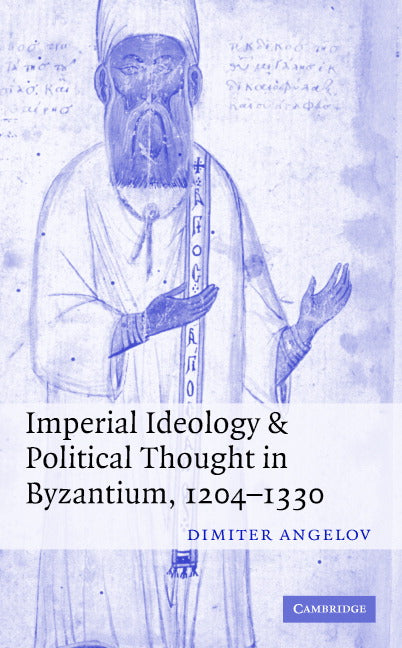Freshly Printed - allow 8 days lead
Couldn't load pickup availability
Imperial Ideology and Political Thought in Byzantium, 1204–1330
This study investigates Byzantine imperial ideology, court rhetoric and political thought after the Latin conquest of Constantinople in 1204.
Dimiter Angelov (Author)
9780521857031, Cambridge University Press
Hardback, published 8 February 2007
474 pages
22.9 x 15.2 x 3 cm, 0.88 kg
Review of the hardback: 'Angelov offers a subtle study of the interplay between official pronouncements about right political order and those ideas about imperial rule that developed in semi-official or independent contexts. To this end, he deploys an astonishing spectrum of sources from a century-and-a-half of Byzantine history, including preambles (prooimia) to imperial charters, orations composed for public performance at the imperial court, mirrors of princes, philosophical treatises and rhetorical exercises.' The Anglo-Hellenic Review
This study is the first to systematically investigate Byzantine imperial ideology, court rhetoric and political thought after the Latin conquest of Constantinople in 1204 - in the Nicaean state (1204–61) and during the early period of the restored empire of the Palaiologoi. The book explores Byzantine political imagination at a time of crisis when the Empire ceased to be a first-rate power in the Mediterranean. It investigates the correspondence and fissures between official political rhetoric, on the one hand, and the political ideas of lay thinkers and churchmen, on the other. Through the analysis of a wide body of sources, a picture of Byzantine political thought emerges which differs significantly from the traditional one. The period saw refreshing developments in court rhetoric and political thought, some with interesting parallels in the medieval and Renaissance West, which arose in response to the new historical realities.
Introduction
Part I. Official Ideology: 1. Analyzing imperial propaganda
2. The imperial idea: continuity and change in the imperial image
3. Rhetorical theories of succession
4. The ideology of imperial government
5. The panegyrists as lobbyists
Part II. The Independent Theorists: 6. Tradition and innovation in theoretical texts
7. Theodore II Laskaris as a political thinker
8. The critics of the Palaiologoi: fiscal responsibility and elective kingship
9. The controversy on imperial taxation
10. Manuel Moschopoulos, Plato, and government as social covenant
Part III. The Ecclesiastics: 11. The emperor - subject to the church: late Byzantine hierocratic theories
Conclusions.
Subject Areas: Political ideologies [JPF], History of ideas [JFCX], Early history: c 500 to c 1450/1500 [HBLC], European history [HBJD]


